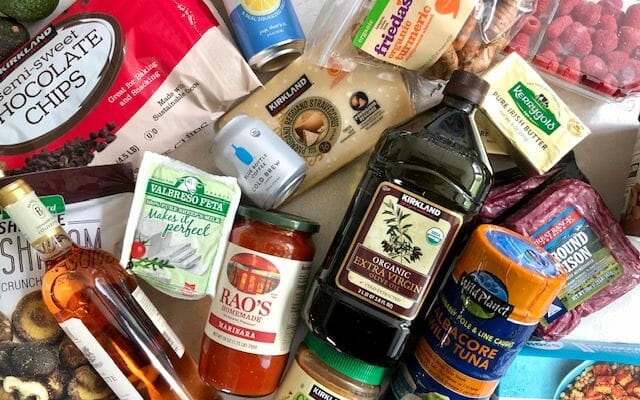Benefits of Cutting Food Waste

Starting the New Year with a conversation about garbage isn’t exactly the sexiest way to launch into January. But the subject of food waste is an important, if overlooked, topic. We live in a society where plenty of people don’t get enough to eat while hundreds of thousands of pounds of food gets dumped into landfills each day. I’ve come to see my own bad habits with regards to food waste, mostly from overbuying or not making better use of what’s on hand. And there are plenty of benefits of cutting food waste.
According to the USDA, 90 billion pounds of food is wasted every year in homes or restaurants. That’s about 30 percent of the overall food supply if you include what’s wasted at grocery stores, too. All of this garbage takes a huge toll on the environment. Growing far more food than gets eaten has an impact to be begin with. And then that wasted food ends up in landfills where it breaks down, producing greenhouse gas, which further contributes to climate change.
So Much Wasted Food
Taking a look at your family’s food waste seems like an especially good idea now, coming on the heels of big holiday meals followed by nights spent staring into the refrigerator wondering, “what the heck am I going to do with all this food?” Not to mention the thoughts of families less fortunate who could benefit from the food that doesn’t get tossed into the garbage.
While this may seem like a major issue —and it is—at least it’s one that we can each do something about. For the next few weeks, we’ll look at ways to reduce our food waste foot print. Bring your family into the conversation as we share tips and ideas, and even a “no waste” recipe to get you started.
Benefits of Cutting Food Waste
It can be both informative and motivating to start out looking at the upsides of cutting back on food waste. Here are three primary reasons it deserves your attention.
Saves Money
Planning a little better, making use of your freezer for foods on the verge of expiring, and being clever with what you have, can all add pad your pocketbook over the long haul.
Positively Impact the Environment
Producing less waste in your home means less food in landfills. In San Francisco, we have a robust city-wide composting program. Perhaps that’s something to explore in your area (or your own backyard) as well.
Helps Feed Your Community
When you have unopened food you know you won’t eat (I find this especially the case after the holidays) donate it to your local food pantry, food drive, or food bank. This Food Bank Locator may come in handy.





Comments
03.12.2016 at6:19 AM #
Stella Pascal
The facts about the food waste are so disturbing, indeed. My sister and I started this year with the decision to reduce our families’ food waste and to try zero waste too. Both of us think that minimizing global food waste is mostly a mission for each person separately. Definitely recommending your post.Greets!
03.12.2016 at6:19 AM #
Katie Morford
Good for you…and nice to have a partner in the your endeavor, since it does take some effort and mindfulness to cut back on waste. Thanks for the comment.